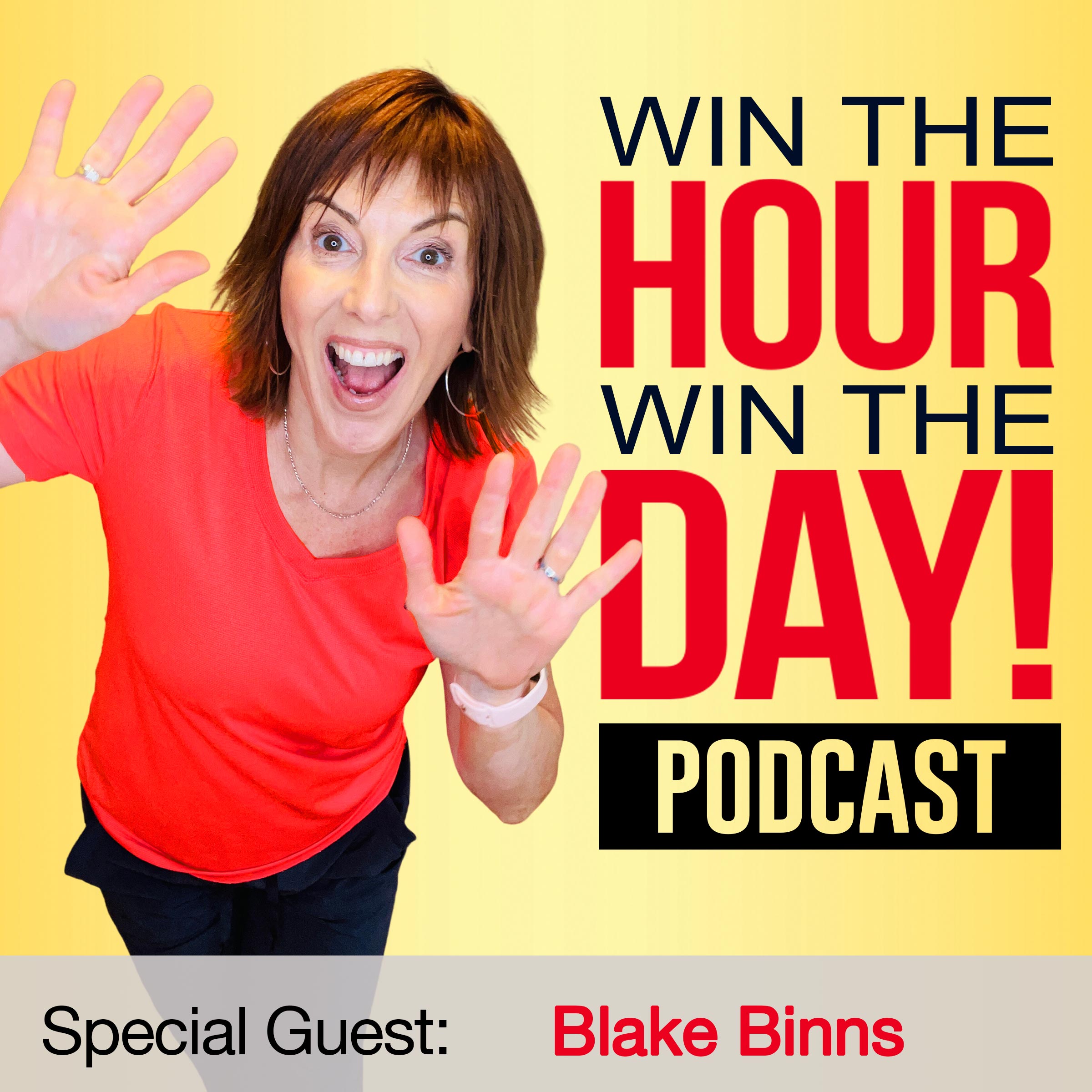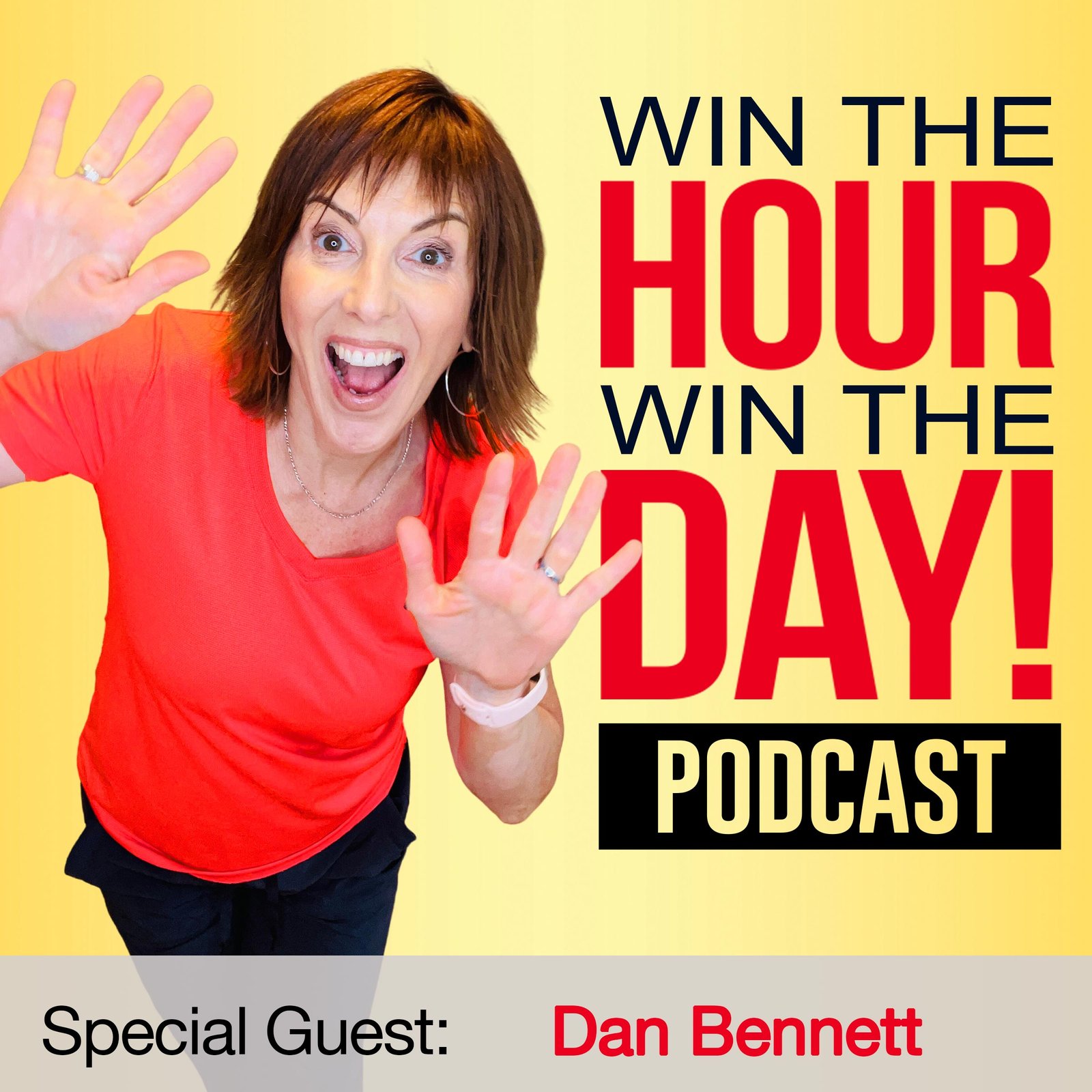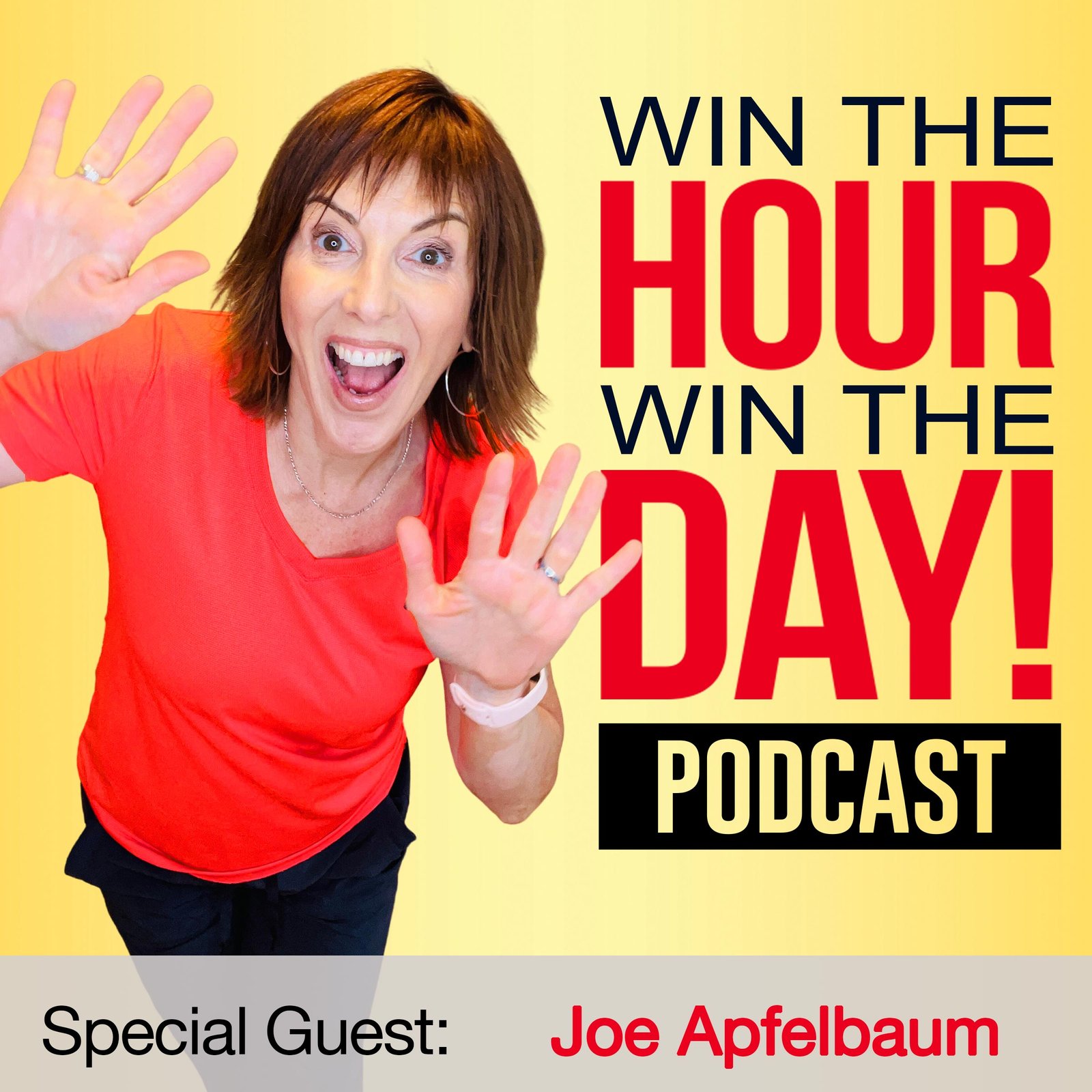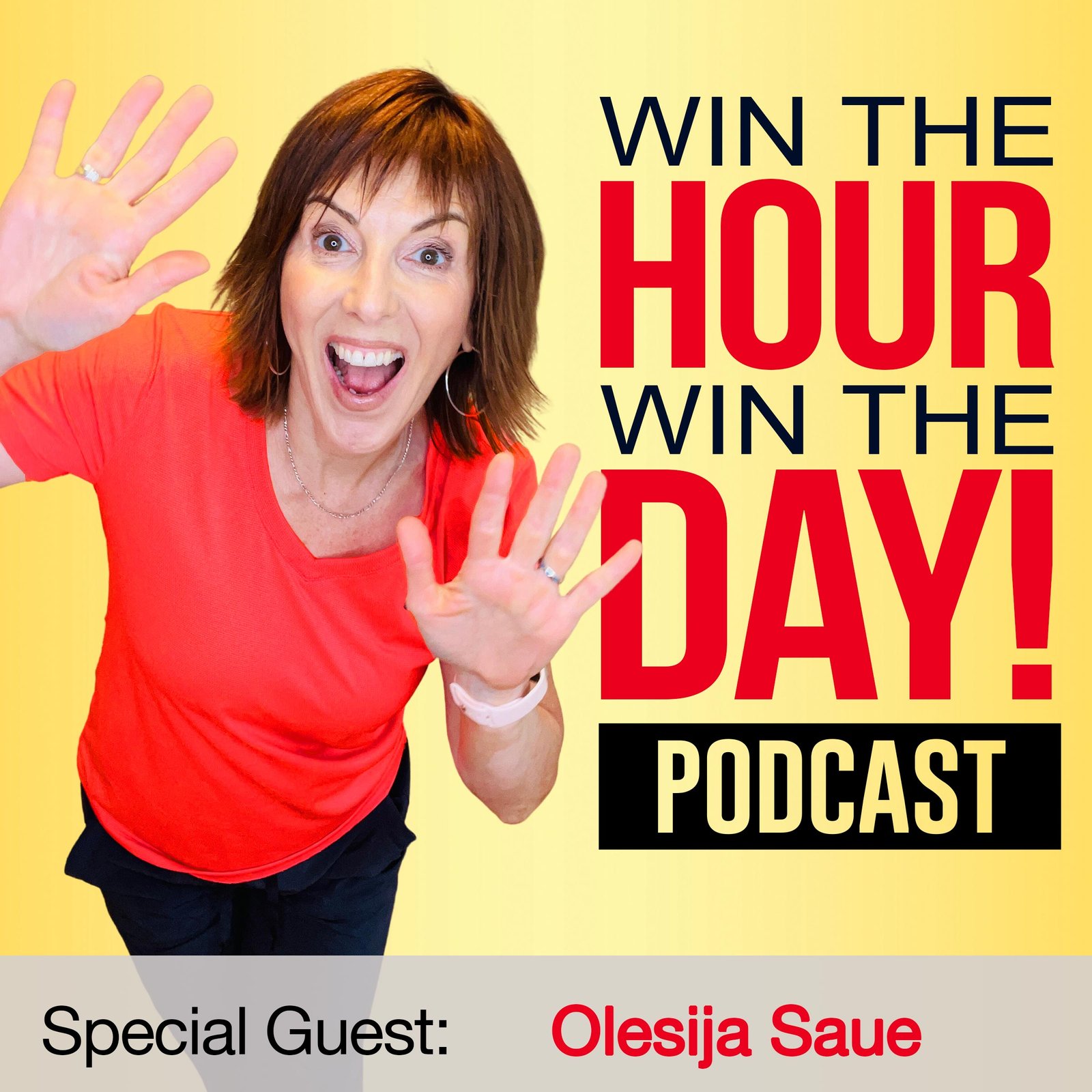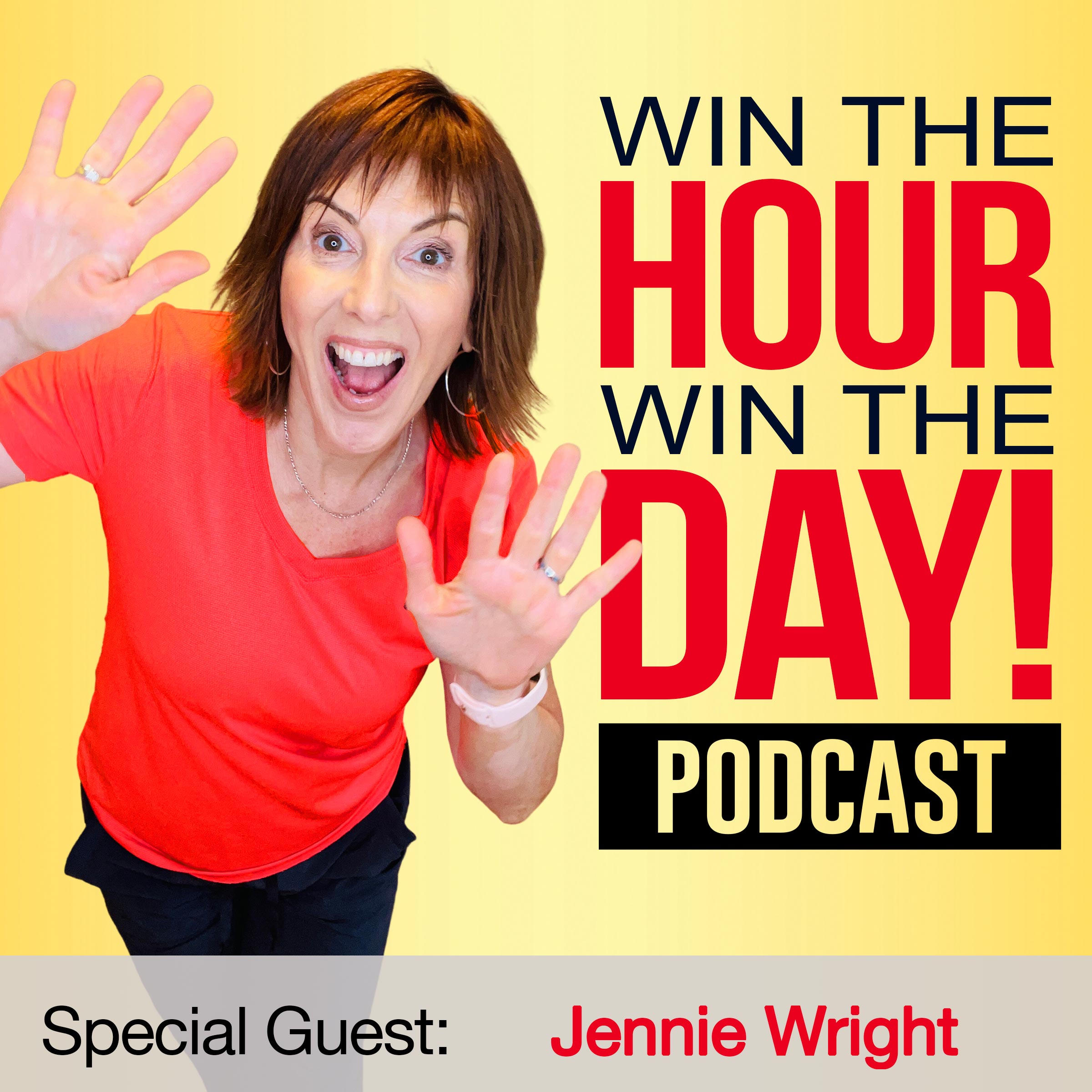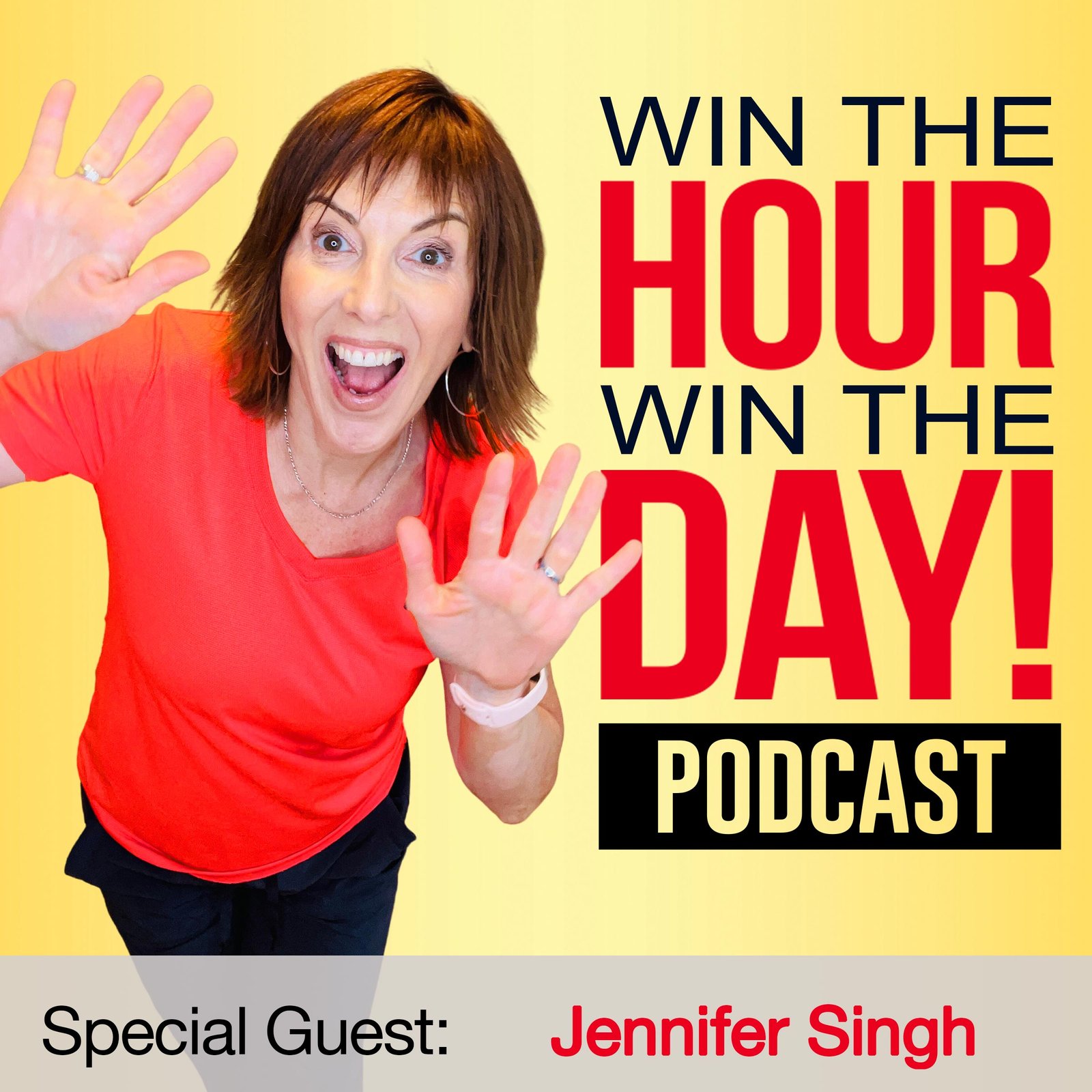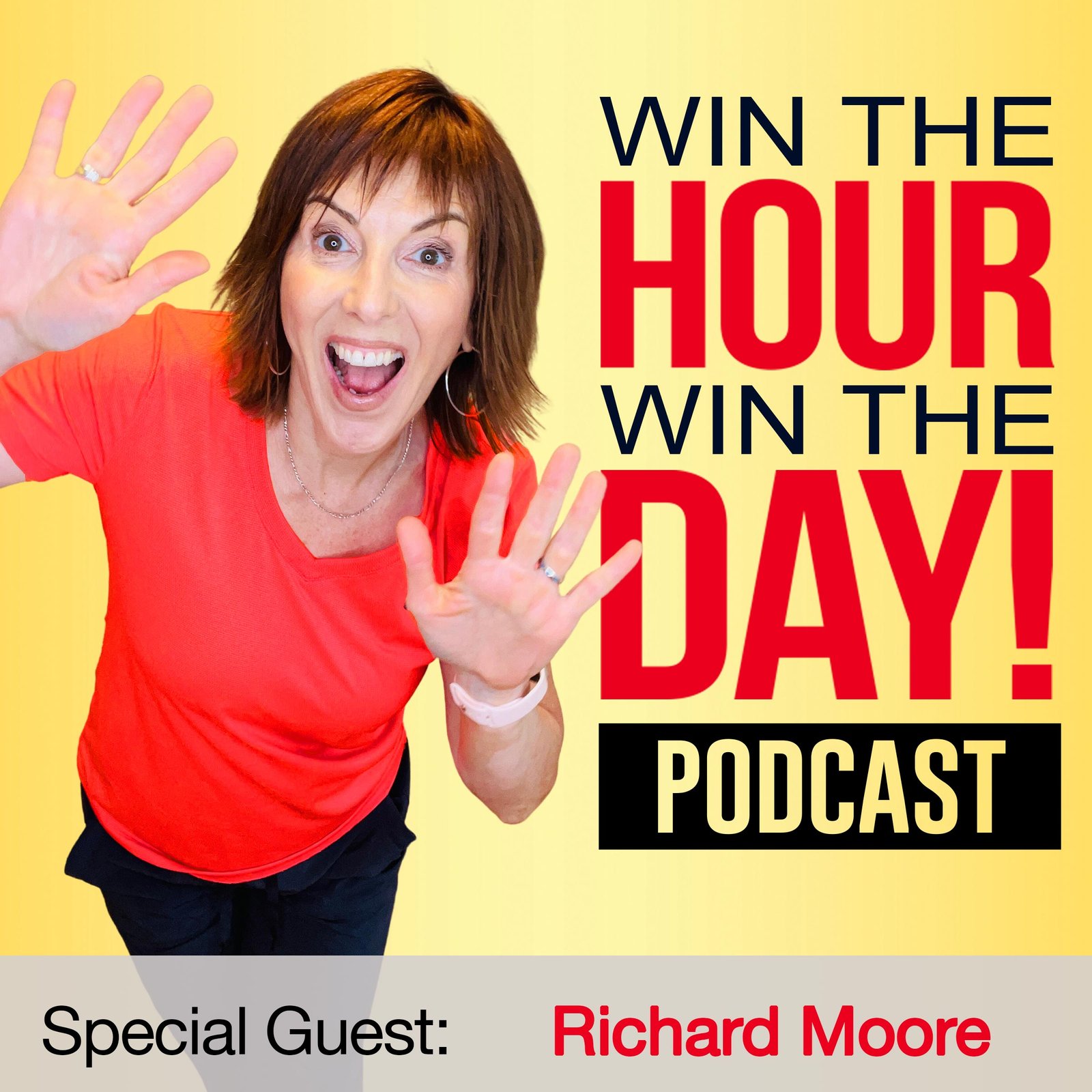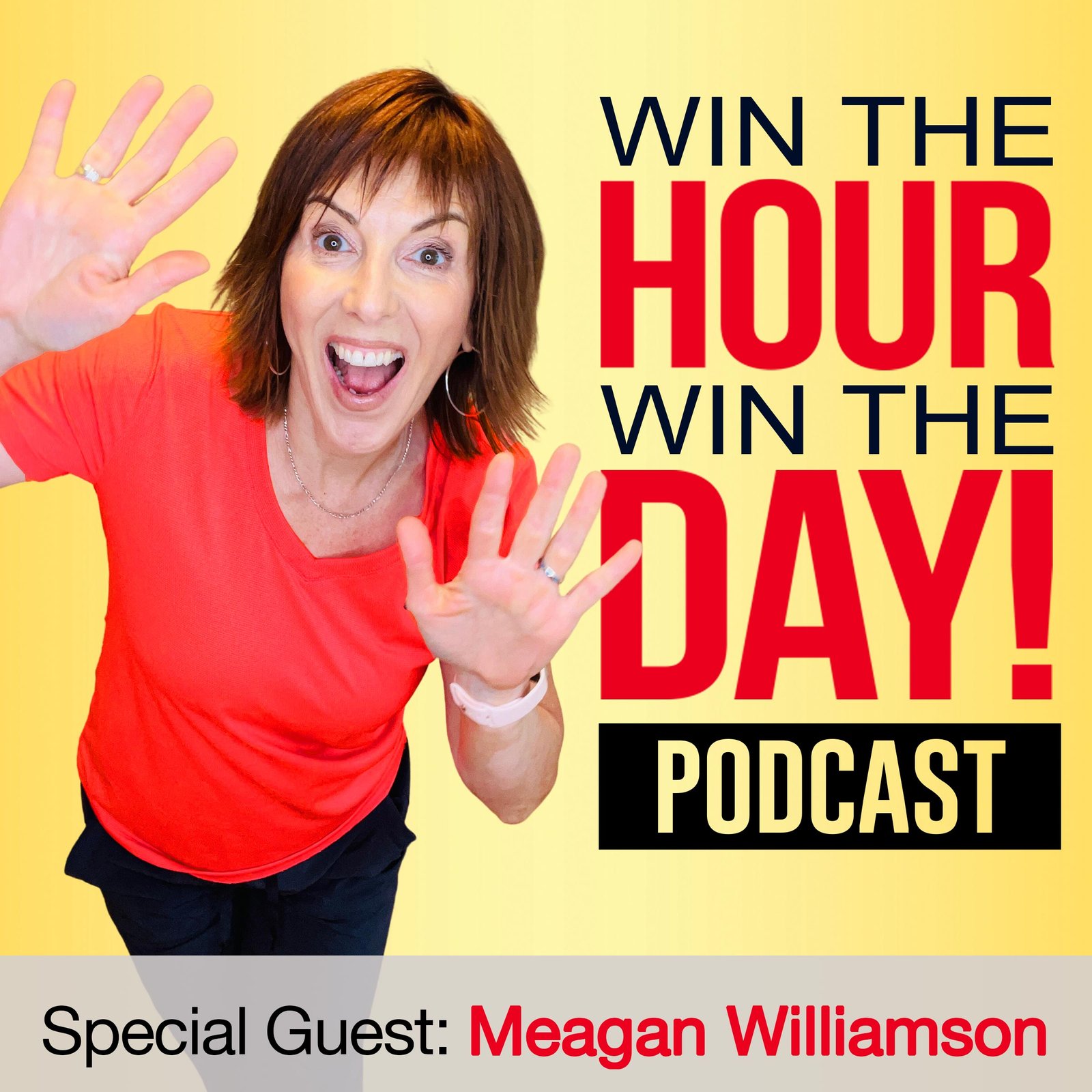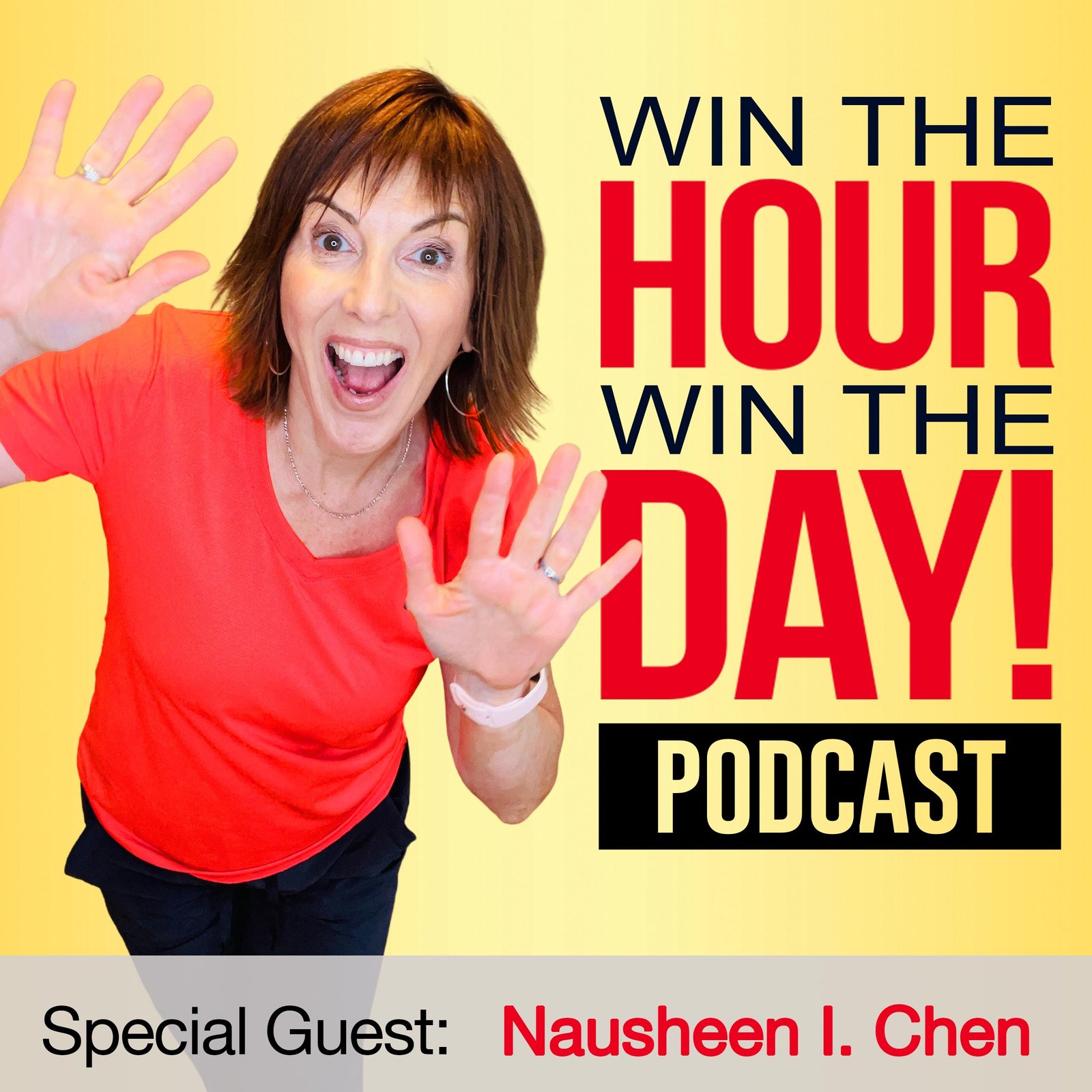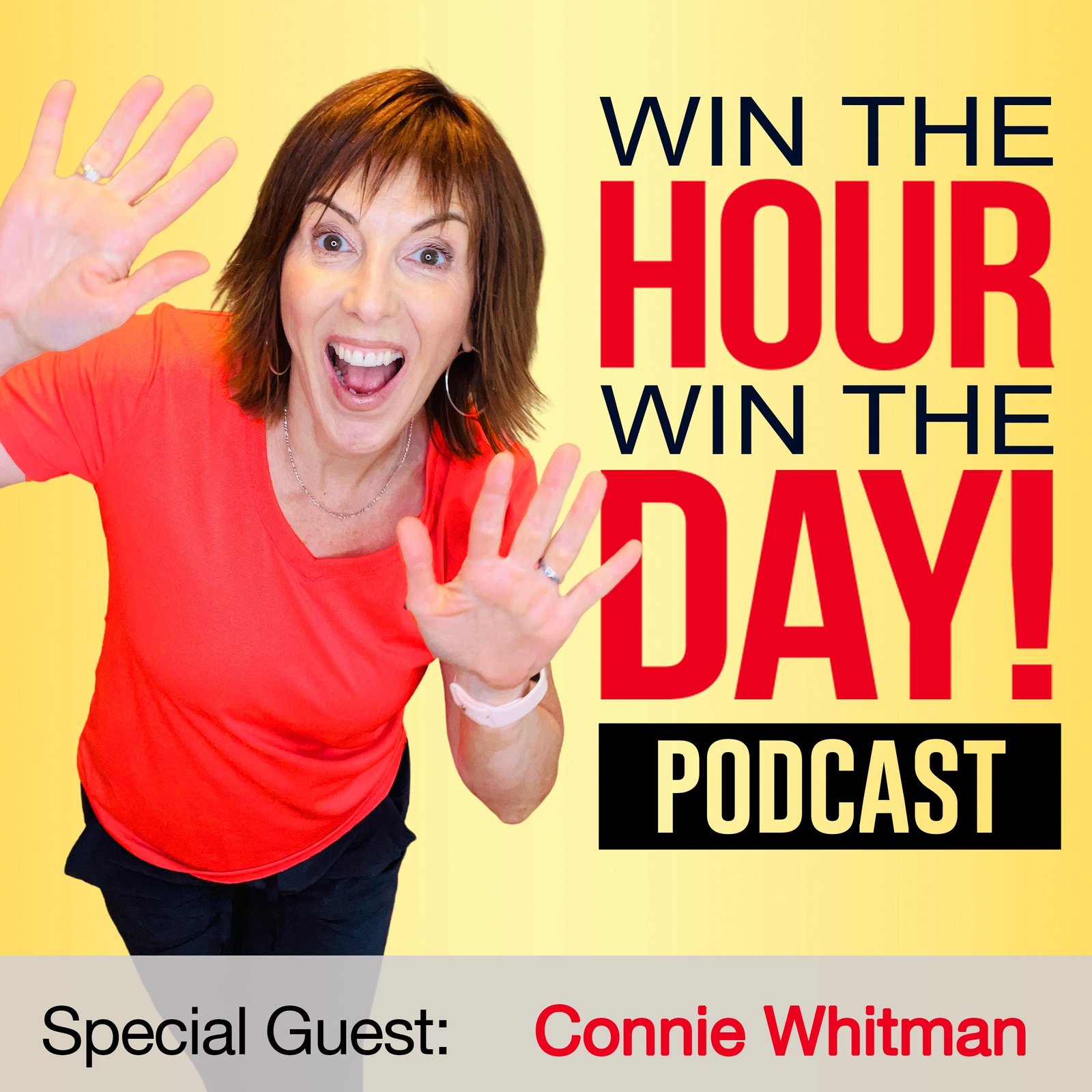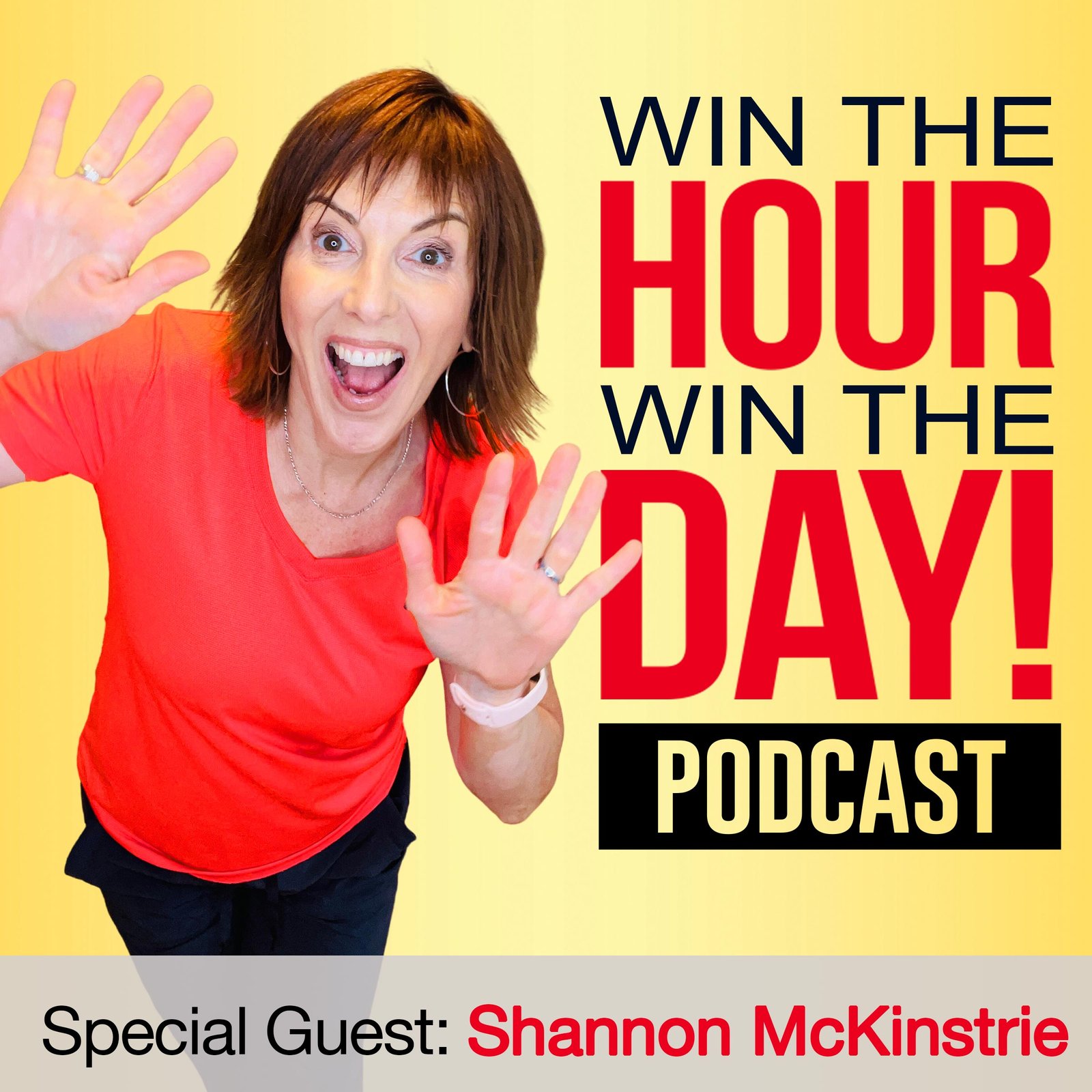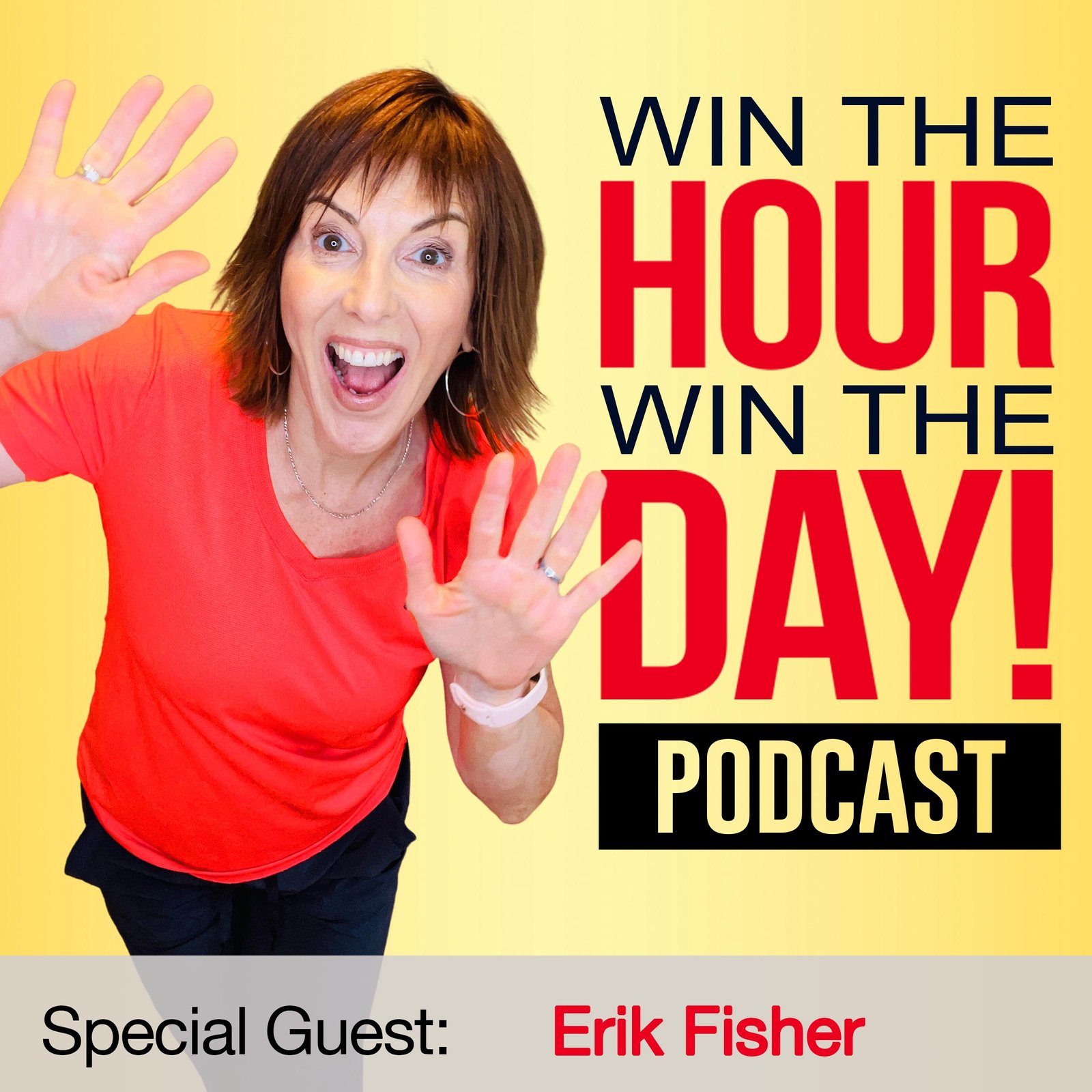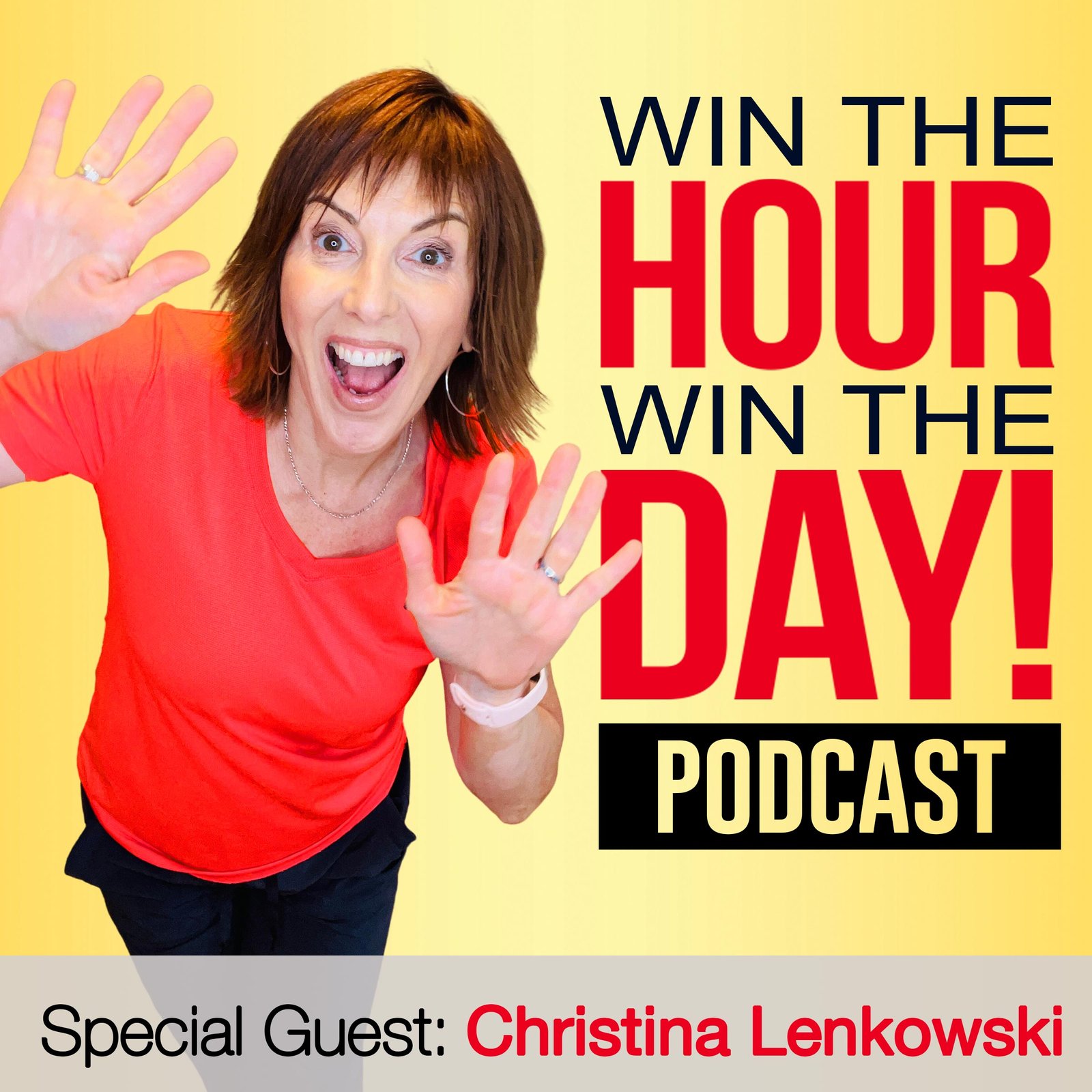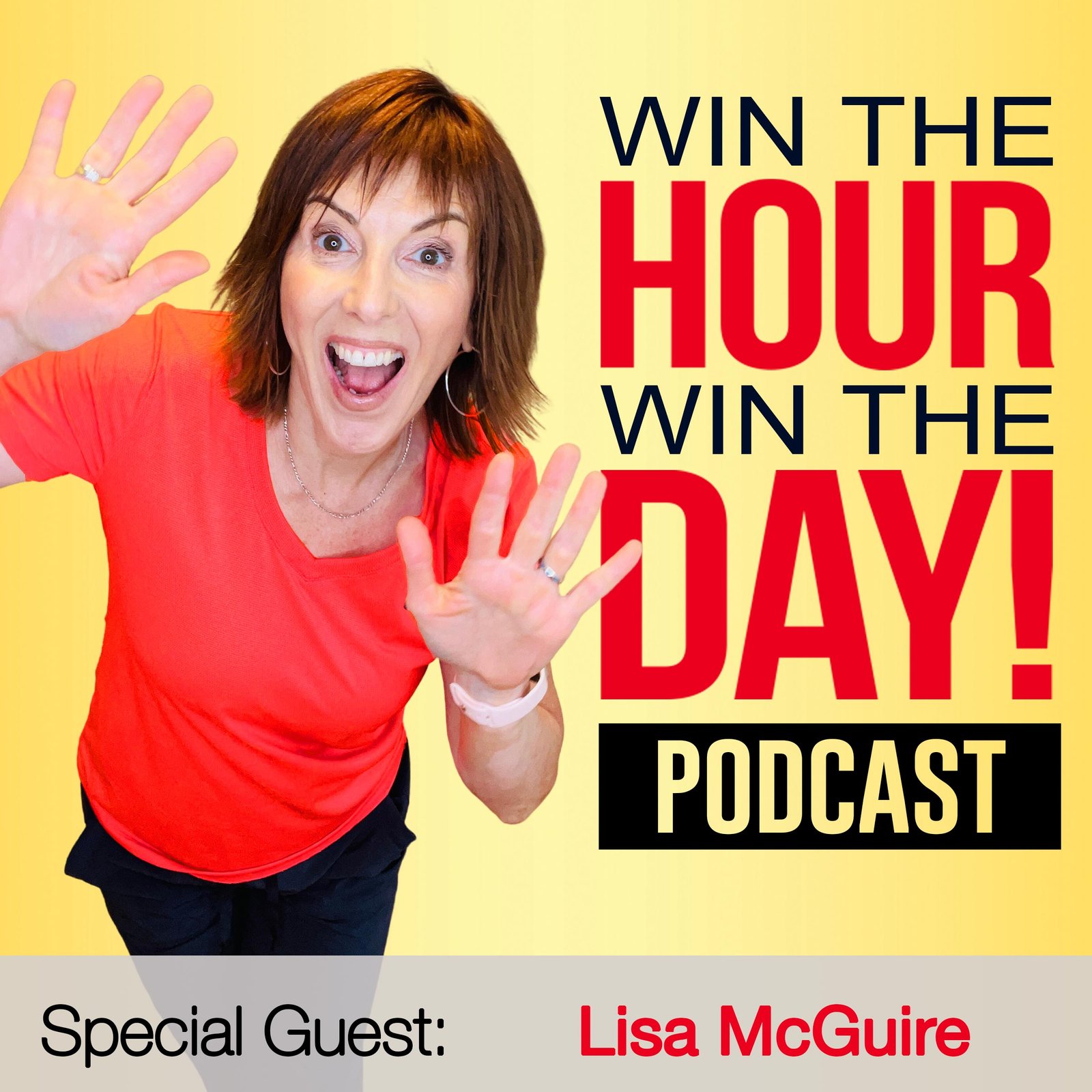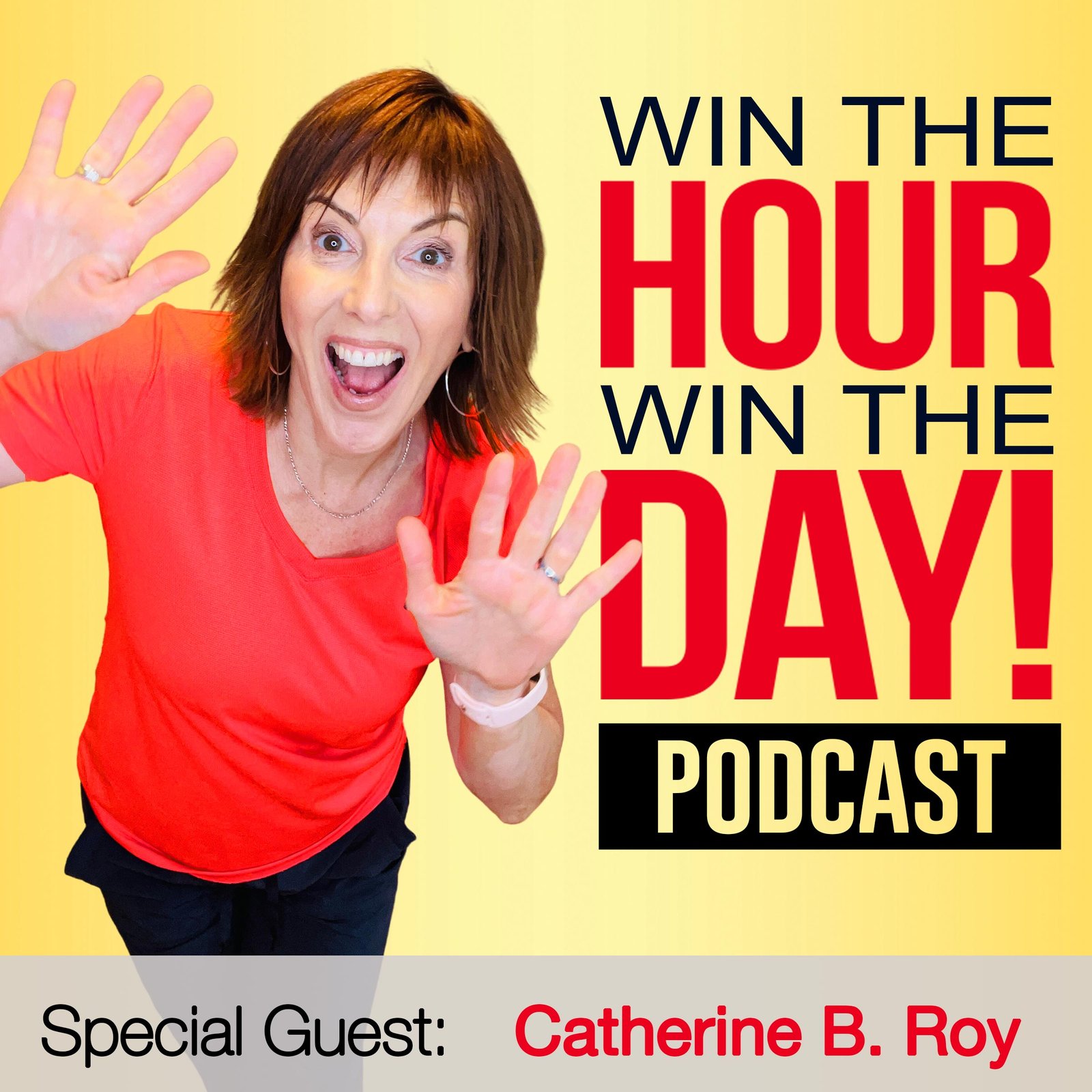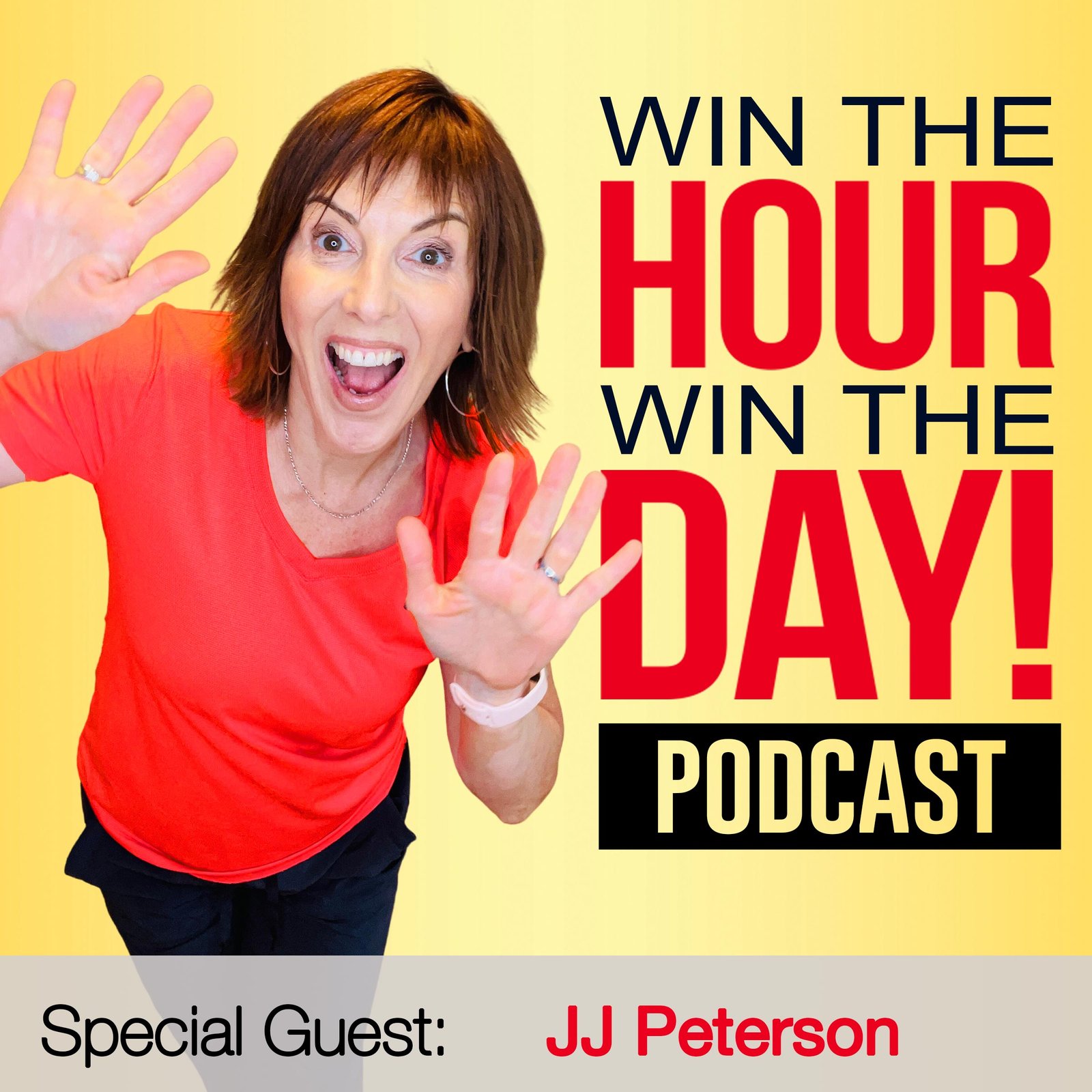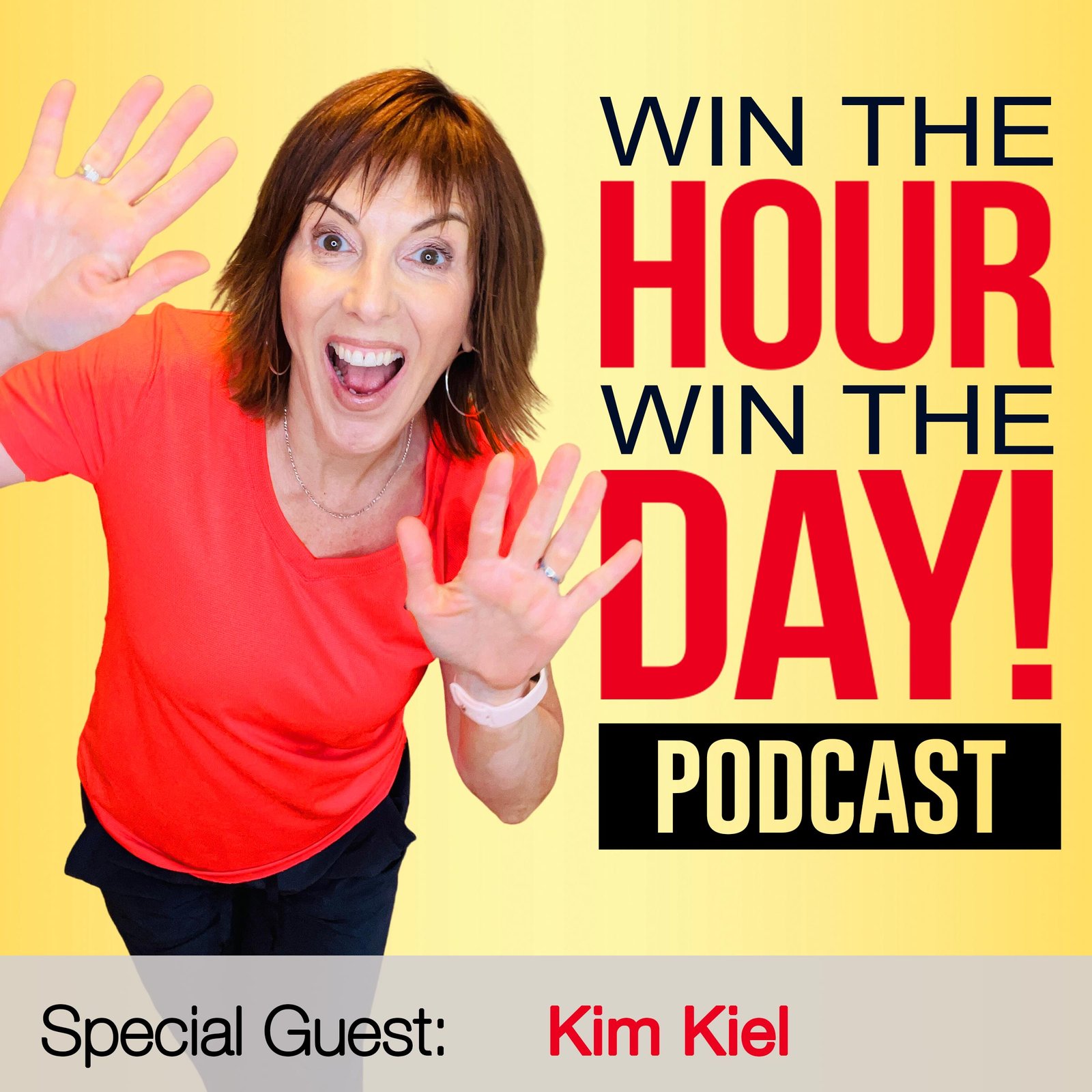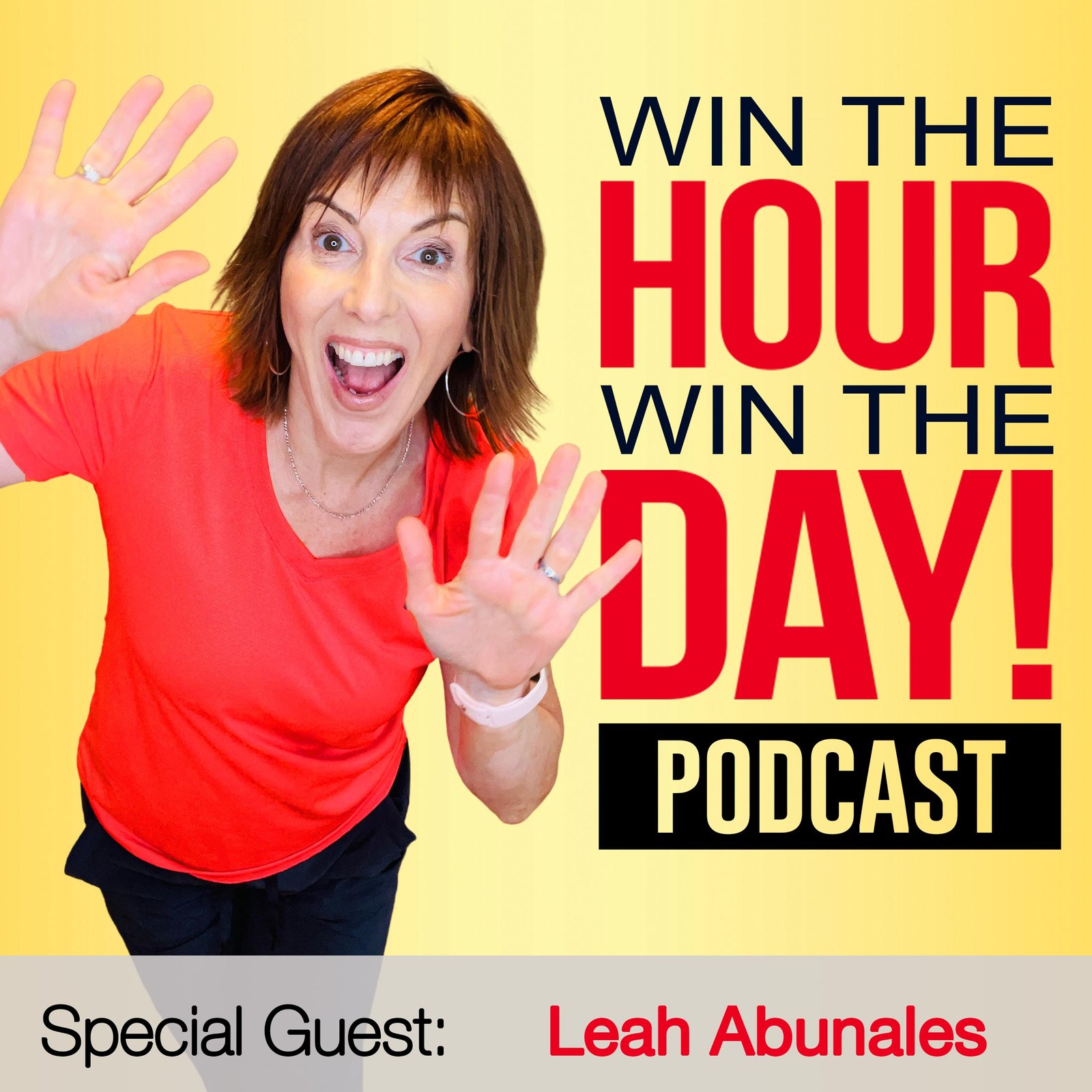Episode Summary This week’s episode of Win The Hour, Win The Day Podcast is...
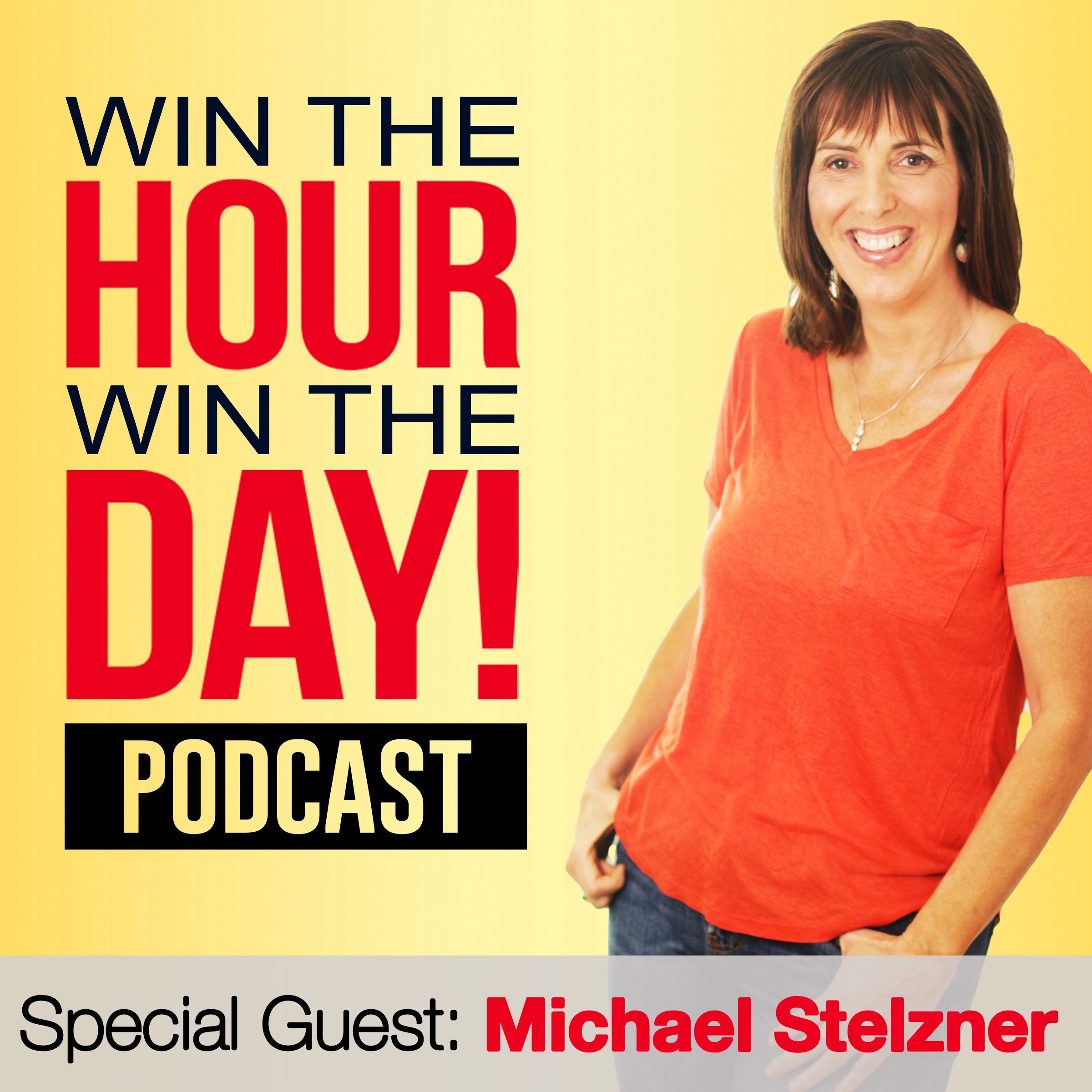
Are You Ready For Your Next Big Win?
Know your entrepreneur personality and I’ll take it from there!
Recent Podcast Episodes
Preventing Burnout with Smart Work Tools! with Kris Ward
Episode Summary This week’s episode of Win The Hour, Win The Day Podcast is...
Master Social Selling: Heidi Medina’s Strategies for Engagement
Episode Summary This week’s episode of Win The Hour, Win The Day Podcast is...
Boost Productivity and Master Storytelling! with AmondaRose Igoe
Episode Summary This week’s episode of Win The Hour, Win The Day Podcast is...
Master Video Marketing: Top Tips for Entrepreneurs with Dan Bennett
Episode Summary This week’s episode of Win The Hour, Win The Day Podcast is...
Boost Your LinkedIn Strategy with AI Tools for Enhanced Productivity! with Joe Apfelbaum
Episode Summary This week’s episode of Win The Hour, Win The Day Podcast is...
Mastering Personal Branding with NLP Techniques! with Olesija Saue
Episode Summary This week’s episode of Win The Hour, Win The Day Podcast is...
Innovative Lead Generation and Email Automation Secrets with Jennie Wright
Episode Summary This week’s episode of Win The Hour, Win The Day Podcast is...
PR Strategies for Diverse Entrepreneurial Impact! with Jennifer Singh
Episode Summary This week’s episode of Win The Hour, Win The Day Podcast is...
Convert More Clients on LinkedIn with Richard Moore
Episode Summary This week’s episode of Win The Hour, Win The Day Podcast is...
Master Business Growth on Pinterest with Meagan Williamson
Episode Summary This week’s episode of Win The Hour, Win The Day Podcast is...
24/7 Sales Boost: Video Marketing Secrets with Alex Sheridan
Episode Summary This week’s episode of Win The Hour, Win The Day Podcast is...
Master Public Speaking Tips with Nausheen Chen!
Episode Summary This week’s episode of Win The Hour, Win The Day Podcast is...
Beating The Burnout With Connie Whitman’s Success Story
Episode Summary This week’s episode of Win The Hour, Win The Day Podcast interviews,...
Craft Your Social Media Content Strategy With Shannon McKinstrie
Episode Summary This week’s episode of Win The Hour, Win The Day Podcast is...
Boost Your Productivity with AI Tools: A Deep Dive with Erik Fisher
Episode Summary This week’s episode of Win The Hour, Win The Day Podcast is...
Boost Visibility: Repurpose Content and Leverage Podcasts With Christina Lenkowski
Episode Summary This week’s episode of Win The Hour, Win The Day Podcast is...
Master Personal Branding & Storytelling with Lisa McGuire
Episode Summary This week’s episode of Win The Hour, Win The Day Podcast is...
Boost Business on LinkedIn with Catherine B. Roy’s Strategies
Episode Summary This week’s episode of Win The Hour, Win The Day Podcast is...
Scale Your Business: Optimizing Virtual Assistant Services with Kris Ward & Rachel Eubanks
Episode Summary This week’s episode of Win The Hour, Win The Day Podcast is...
Affordable PR Mastery: Crystal Richard Unveils Modern Techniques
Episode Summary This week’s episode of Win The Hour, Win The Day Podcast is...
Mastering Business Storytelling with JJ Peterson’s Guide
Episode Summary This week’s episode of Win The Hour, Win The Day Podcast is...
Revamp Your About Page: Guide to Personal Branding
Episode Summary This week’s episode of Win The Hour, Win The Day Podcast is...
LinkedIn Mastery and Video Marketing Secrets with Alex Sheridan
Episode Summary This week’s episode of Win The Hour, Win The Day Podcast interviews,...
The Systems and Processes Playbook: Insider Secrets to Streamlining Your Small Business with Leah Abunales
Episode Summary This week’s episode of Win The Hour, Win The Day Podcast interviews,...
Make Social Media Platforms Work For You! With Michael Stelzner
Episode Summary
We have a really great conversation about everything social media! We talk about where Michael is spending his time online right now. And why!
Also Learn:
– the real trick to any success on ANY social media platform
– how your imperfections are your biggest strength
– and when to say no to different social media options.
Join The Community: https://www.facebook.com/groups/WinTheHourWinTheDay/
Win The Hour, Win The Day! www.winthehourwintheday.com
Podcast: Win The Hour, Win The Day Podcast
Facebook: https://www.facebook.com/winthehourwintheday/
LinkedIn: https://www.linkedin.com/company/win-the-hour-win-the-day-podcast
You can find Michael Stelzner at:
Website: https://www.socialmediaexaminer.com/
Facebook: https://www.facebook.com/stelzner
Facebook: https://www.facebook.com/smexaminer/
LinkedIn: https://www.linkedin.com/company/social-media-examiner/
Twitter: https://twitter.com/Mike_Stelzner
Twitter: https://twitter.com/SMExaminer
Michael Stelzner NYB Podcast – Timestamp – PART 2- Transcription
LEGEND:
Green – Best lines of the guest
Yellow – Introduction of the guest
RED Trailer
Orange -Quotes of the guest
TIMESTAMP- Starts
Kris: (26:52)
This is now your business and I am Kris Ward and I am super excited to have this guest back. If you remember, he was our first guest in launch week and we were thrilled beyond, thrilled to have him and we could not be luckier that he has come back yet again. So much to dive into so much and talk about, we are talking about what I refer to as the North star in all social media we have here people, Michael Stelzner is in the house. Welcome Michael.
Michael: (27:21)
Hey, thanks for having me back.
Kris: (27:23)
Listen, Michael, before we dive in, I just want to skim over this very impressive and massive bio that you have and let the people know all the stuff that you’re behind. So Michael Stelzner is the founder of social media examiner, author of the book’s launch and writing white papers and the man behind social media marketing world, the industry’s largest conference. He’s also the host of social media marketing podcast and the founder of social media marketing society. We could not be more thrilled to have you back, Michael. There’s so much I want to dive into and so much to learn from you. We got some really juicy nuggets in episode one and there was a reason you were number one because you are number one. So go back, check that out. But today, Michael, let’s just, first of all, I’m just so excited to have you. I’m talking over you.
Michael: (28:13)
No, no, no, I’m just saying keep going. You’re good.
Kris: (28:21)
Okay. So I remember back in the day, I mean, it seems like when dinosaurs roamed the earth at this point, but I remember when you were like a, you know, a little email thing. I got like a flyer and then it escalated to this virtual summit. I mean, I remember all that stuff. And so what I find fascinating and what I would love to know from, you know, for our audience who’s trying to, you know, really get into what can they do now for your business? Just all this stuff that happened in the last five to, you know, even 10 years, but even in five, there’s been so much crazy, crazy change in so many different things exploding. How did you navigate through that? I mean, you made it look effortless. So we’re just really interested to know, like just from a business perspective, he taught us so much about the social media, but how did you, when so many people fell to the wayside, how, how did you keep rising up?
Michael: (29:18)
Well, we just turned 10 social media examiner, uh, within the last couple of weeks. Uh, as of this recording. And, um, I think that the key is to just always look a little bit further down the road than you currently are. Uh, social media is one of those things that has always been changing. And as a result of that, you know, I used to call it the fastest changing industry on the planet. It’s not changing as fast today as it was back in the day, but there was always so much change going on and as a result, it forced me to kind of look at what’s happening today and what it might mean tomorrow, especially with big companies like Facebook, which happens to also on Instagram. So all of these changes that have been happening are usually a sign of something that’s happ that’s going to happen down the road. So I just always put my analysts cap on and I said to myself, okay, what’s changing? For example, as of right now, there’s a heck of a lot of changes going on. For example, we’ve got, we’ve got the, uh, the big change I think that’s going on right now is the way people are consuming content. So back in the day, people would read content and that was the main way that they consume content is through blogging, news and all that kind of stuff. But in the last couple of years, the social platforms have repressed that kind of content. So there, you remember the day when you used to go on Facebook and all you saw was articles, well guess what, these are gone now. Instead it’s video, right? And everybody’s watching video. And we have been Netflix guys, if you will, right? I mean, you think about like an Amazon prime and all these other Disney plus platforms and stuff that’s coming on. We’re now in this world where we’re receiving information more visually than ever we have in the past. So as a result, the next big trend that I see happening is the move towards video content. And of course podcasting and starting to blow up too, right? I mean, we’ve got a lot of things that have been happening. Like a Spotify bought, uh, two big players. They bought Gimlet media and they also bought inker and they put a big stake in the ground and said, we’re going to be all in on podcasts. And then you’ve got an Apple that just rolled out a new operating system where podcasting is on the bottom of every Mac OS so now when you open up your Macintosh, you’re going to see a podcasting app and people are gonna start listening to podcasts anymore. So as these new, um, changes start happening, we need to kind of like embrace them as a company. Cause we’re a media company, we’re in, we’re in the business of creating content that, that, uh, meets people where they are.
Kris: (31:55)
Now. When you were going through all these changes, because there’s just so much happening, like in, you know, in those 10 years of social media is like equivalent to your grandmother telling you she didn’t have electricity, right? Like right. There’s just so much change from what we thought was social media to what it is now. Like it’s crazy. Right? So when you were doing that during that journey, you know, what were some times for you because you did make it look so flawless and we did always follow you. To me, you’re the Northstar of social media, like by a long shot and you never seem to falter or veer from that. But did you have any moments where you said, okay, we gotta do this now. We have to make a change here or, or this has to go next?
Michael: (32:35)
Like all the time in two, 2018, one of the big things we did was we stopped doing video on Facebook. Um, and we said, we’re going all in on YouTube because we began, we began to realize that people weren’t watching video for more than maybe 60 seconds on Facebook when we were producing longer form video. So we said goodbye Facebook video. Um, we also decided in 2018 to not focus on Pinterest anymore. Yeah. We said, you know, the traffic that was coming from Pinterest in our particular case was not serving our business objectives. And we’re B2B, right? So we’re helping people in the world of business, not consumers. So we said goodbye to Pinterest, but the reality is every single year we stop things that aren’t working for us. So we can start something new. And this year what we’re doing new is YouTube. Uh, we’ve recently started publishing original, if you will, video tutorials twice a week on YouTube and it’s starting to pop. So what we do is we look at where the world, where our world, where marketing is heading. And we just ask ourselves like, do we need to be there? And if we need to be there, oftentimes that means we got to stop something else so we can start something new. Because in the world of business, uh, we, we are creatures with limited time. And if we try something new without stopping something old, the were eventually gonna crash.
Kris: (34:00)
Right? And that’s interesting coz I would often listen to you during my workouts if I went for a long bike ride or a long hike. And so I would come back and tell people like my team as if I had been to the mountain and talk to Moses, I’d say, okay, because we’re not doing this anymore. Cause Michael says, and because especially when you got off video and you’ve made that big announcement about Facebook, that was a really, um, it seemed like it, it tortured you a little bit. Like you were really talking about it. It didn’t make sense. You, you were showing the numbers and you were really going [inaudible]
Michael: (34:30)
well, I think a lot of flak, I took a lot of flack from the Facebook community, but fascinatingly enough, a lot of those people now are exploring other platforms as well because I often, I don’t make decisions on impulse. I make decisions on data. And of course people who are, um, people who are building their identity on a certain platform alone, you know, would see someone like me saying something like that as a threat. Right? Because they might be out there teaching the world how to do video on Facebook. And here I am saying video on Facebook doesn’t work. And in their minds I’m challenging their worldview, you know?
Kris: (35:10)
Right.
Michael: (35:11)
So obviously that’s part of why I had to do a lot more to explain my rationale. But you know, and if I’m wrong I come out and say it, you know, later. But generally speaking, I’ve been pretty accurate because I don’t really make big broad moves like this until I have an overwhelming amount of data.
Kris: (35:29)
And I don’t mean this question in a negative tone, but when you do have such a leadership role as far as social media and you’ve got session impactful podcasts and you do, you know, your, you’re coming out and saying, here are the stats, this is what I’m responding to. Does it put a little bit of a target on your back? Like does there, is this sort of, you know, a backlash will you say,
Michael: (35:52)
I it, it’s a great question. The good news is that I don’t come out very often and make very big declarative statements. But this year I come out with two. One of them was that one of them was titled the death of Google search organic search, which you didn’t hear on the podcast but was definitely in the blog. Uh, and the other one was beware of Facebook groups. Now, now in both of those situations, um, uh, well actually in the Facebook group situation, I took some heat from people who are all in on Facebook groups, but I wrote a really detailed, thoughtful, analytical post about how Facebook groups are Facebook’s answer to privacy because if Facebook is going to encrypt everything, well, they’re just gonna want to incentivize people to join Facebook groups and share publicly in these groups a lot of information about their struggles so that they can build detailed information profiles on these individuals. And that’s gonna be one of those things that’s a data play. And a lot of marketers are up in arms because like they’re saying, how dare you say Facebook has bad motives? And I’m like, well, come on now. I haven’t. You been paid attention to the news. You know, Facebook is a in the business of selling your information. So don’t be so ignorant to think that. And as a result, I said maybe we ought to explore building communities that do not live exclusively on Facebook because the day will come, or Facebook will say, well Hey you got that awesome community built. You want to reach them, you’re gonna have to pay us. Cause that’s exactly what happened with pages. So I’m not, I’m not beholden to any social platform, which I then kind of gives me a little bit of strength and power to say what others won’t say because there are people out there that put their whole reputation on the line, on a single platform. And then when that platform does something negative, they’re not gonna go out there and say anything about it. So while it’s true that I take heat, I also think that a lot more people respect the fact that I’m taking a position because better to have someone take a position that is going to help the community than have someone say nothing and then have everyone blindly make mistakes.
Kris: (38:00)
Yeah, that’s true. And I think too, for many of us, you try to, you know, be all growed up and do impressive things. But when you’re putting that stuff out there in social media, it can be sometimes hard when you get that negative feedback and you certainly don’t want to get, when you get that push back to get into a discussion online and all this other ridiculous is that’s not what you’re into. So to me where you know, you, to me, you’re the guru of social media coz you do come with so many facts and all that other stuff in it. I often wonder how you stay above that as a company when there’s so many that we’d love to be. And I don’t, the language sounds competitive. That’s not what I mean. I just mean there’s so much happening. So many different things perculating always in a social media world. So for you, for you to have like this constant and steady gate of, you know, saying, here’s the facts, here’s what we’re doing without really, and, and you’re, you’re not, I don’t want to say you’re not much further ahead than us, but what I mean by that is you’re not inventing these social media. You don’t have direct access to their head office for the most sake. So you’re navigating social media like we are and, and so what I find really interesting is as you navigate it, you report to us. So you really have two very difficult jobs, I think that you’ve done seamlessly.
Michael: (39:21)
Well, internally we refer to ourselves as the social media trail guides, right? And a trail guide is someone, if you’ve ever hiked like in, in a place that’s kind of, you know, maybe has occasional landslides or a overgrowth or that kind of stuff, a trail guide is going to make sure that they’re, they’re navigating you up the mountain in a way that’s safe, right? And that’s what we do. So because we have a decent sized team, we’re watching these trends, we can see things that others aren’t looking for because we’re watching for them. And then we can begin to internally connect the dots and kind of say, well this is what we think it means. But the key thing to our success is we, we don’t tend to have a lot of opinions. We instead bring people who have opinions to our audience. Does that make sense?
Kris: (40:05)
Yeah.
Michael: (40:06)
It’s a lot easier to be in a position of leadership when you are bringing in a diverse set of experts to your audience and they’re sharing their opinions. Does that make sense? So like, like we defer to a lot of the true experts because there are a lot of experts that know way more than I do about Facebook, Instagram, LinkedIn, YouTube. And instead my job is to go out and find those who really know what they’re talking about and ask them the tough questions. And that allows us to remain in a powerful leadership position.
Kris: (40:36)
Well, I just got schooled podcasts, one-on-one, people that I’m writing these things down. That is a lesson you are right. That’s what makes you know, a great navigator is just bringing on the experts. So, uh, this, yeah, that was,
Michael: (40:50)
and, and the, the more experts you talk to, the more knowledge you get. And you know this cause you listen to my show, most of them are not just me talking. Almost all of them is me interviewing. And the difference between being an interviewer is you’re extracting knowledge from others and you’re talking that through for the benefit of an audience. And then occasionally when I come and say things solo, it’s because I’ve been collecting so much information from these experts, you know, and I’ve been watching things that are going on and then I can make an opinion that’s highly informed because I’m getting the wisdom of lots of other people behind the scenes making that up, if you will.
Kris: (41:27)
Yeah, no, that makes so much sense. Now if somebody is a big fan of your show, when you do have like, where would you start now it’s all about now your business. So if you say, okay, I want to dive deeper into social media and listen, you are the show, they, that’s where they sh they that should be a regular part of their diet and then you know, there’s just so, so much vast of knowledge. I mean you’re further up the mountain than all of us. You’re like, that’s a trail guide. That’s a great tip. So when you have all this exposed at your fingertips with social media, with someone that has a smaller team than you are less experienced in you, what’s some tips you can give them so that they can navigate through the social media jungle and
Michael: (42:09)
Sure
Kris: (42:11)
and figure it out without getting overwhelmed and trying to do it all?
Michael: (42:14)
Well, first thing I would say is how do you learn best? You learn by listening, reading, or watching. If you learn by listening, then you could subscribe to the social media marketing podcast and or the social media marketing talk show, which is our other weekly podcast where we bring on experts to literally talk about the news that is happening the week it’s happening. That tends to be really cutting edge. Like, literally it just happened this week. What do you think? We haven’t even figured it all out, but what do you think? So ah, if you truly want to learn, that’s, that’s one way to do it. We also have obviously our blog, we publish almost every day and then we have our YouTube channel. We’re publishing two tutorials a week. So you could just literally consume our content and you would be set and all of this is free. And if you want to go deeper, then we have paid products, uh, which we could talk about. But outside of us, um, you could do, there’s alternative paths of course, right? There’s other products.
Kris: (43:11)
No, but what I mean is, no, let’s, let’s, we are at the podcasts. Social media examiner is the, is the podcast. So I’m going to cut you off there, Michael. So, but I mean is it’s almost like those three places you, those touch points you just mentioned, men, the first thing I start thinking is, wow, if I didn’t waste all that time from midnight to 6:00 AM sleeping, like you could just eat that all up like candy. It’s so great when they’re, even with your platforms, there’s so much coming at you. How do you navigate state comments?
Michael: (43:43)
Yeah. How do you decide? Right. Okay. So start with one thing and decide what that one thing is for your business. So what I would do is I would ask yourself, what kind of business am I in and which platform makes the most amount of sense to start first. Obviously Facebook’s the biggest, but maybe you want to start with LinkedIn. If you’re a B2B or maybe you want to start with Instagram or some other platform. And if that’s the case, then all you do is read, watch and listen to content just on those topics. And there’s plenty of stuff to keep you busy from us just on those topics and then start experimenting with it and, and come up with some sort of goal or metric. Say, okay, my goal is to publish this much, or my goal is to get this many thumbs up or this is be private messages. And then when you started achieving that goal, excuse me. Um, then make another goal and just keep doing it till you get to the point you feel like you’ve got a good cadence and it’s working for your business and then say, all right, I’m ready to tackle the next something. It took us like eight to nine years before we got into YouTube. You know, we started with the written word and then we went over to podcasting and then we went over to YouTube and, or we started with Facebook on the social side of things and we’ve got that down to a mad science. And then I think we did the LinkedIn, no, Twitter, actually Twitter was first, then Facebook, and then eventually we started expanding to LinkedIn and then Instagram and then this and then that. Right. And the idea is like you’ve got to get one of them figured out and then you get the next one figured out and then you get the next one figured out and then you get to a point with your business where, okay, you say, I’m not gonna do this anymore. As the founder or CEO, entrepreneur, I’m going to hire someone else to do this. And once you hire someone else to do this, that frees you up to try something yet new again, until you get to the point where you’re a bigger business like we are and you’re doing lots of things, but you gotta start with something and it’s got to work and it’s gotta make sense for whatever your business objective is.
Kris: (45:46)
And you know what? That makes such sense. And if you sat us all down, you know, we all have common sense and do one thing at a time, do it well and proceed. And man, I would use that in any other aspect of my life. But I think it’s really great to hear that from you because when you open your eyes on the news, on your computer, in all the podcasts, there’s so many different things coming at you. And so you get distracted and you get seduced and you just start thinking, ah, okay. No, no, I’m sorry, I’m behind this week. Turn right sharply. This is the new thing. If I’m not there, then I’m missing everything. So I think that’s really simple, profound advice. That’s a really good reminder for us. And you know, have a goal on what is that goal, what are the metrics you’re looking for versus even paying customers saying, well how much, how much interaction do I want to have? So I think, I think that’s a great note to end on because I think
Michael: (46:39)
Can I give one another piece of advice
Kris: (46:41)
Oh yeah, we had nothing but time for you Michael. Oh my God
Michael: (46:46)
a stopping list come up with this opt in list before you start something new because chances are pretty good. You don’t have a lot of extra time. As a matter of fact, if I’m not certain, you and I have the exact same amount of time.
Kris: (46:57)
Yes
Michael: (47:00)
So you have to, before you get this crazy idea that you’re gonna start something new, ask yourself, what am I willing to give up? Because something has to give.
Kris: (47:10)
Yes
Michael: (47:11)
There’s only so much time you have in the day. So either you have to give it up, you have to give something up or you have to give it up to someone else. Right?
Kris: (47:18)
Yeah
Michael: (47:19)
And a lot of times we’re not willing to give it up to someone else. So we have to be willing to sacrifice some things. Maybe that means you’re not gonna watch as much Netflix or maybe it means you’re gonna forgo some guilty pleasure that takes you like a half an hour to get into Starbucks and out and instead you’re gonna sacrifice that half an hour into something new for the business. So just, I do this with my kids. I say they want an app, they’ve got to delete two every new app you gotta get rid of two. And they’re like, Oh, okay dad. You know, and the idea is they gotta give something up to get something new and you know it and they get it. And they come to me and they say, dad, I’ve already deleted the two. This is the one I want. And I’m like, Oh good, good, good. Let’s do it girls. So I mean, that’s she gotta do. Stopping lists are the key to your success.
Kris: (48:05)
That is a really good point. You know, and I do talk about that in my book, when the hour, when the day and I, in the last few weeks launching this podcast, we went from idea to implementation like in three weeks because I just had a speaking gig and it was a good opportunity for me to launch the podcast on that day. So when we first started the podcast, it was like, or started the idea of it. It was like, okay, we’re going to do six months. And then my team decided, no, no, you know, three weeks from now that would be, so all of a sudden we were like, okay, well where can we trim the fat? And we didn’t have much fat to trim cause we run pretty efficiently. But what it looked like was, you know, those little scrum meetings we have every morning that about half hour, 40 minutes, they had to get down to 20 like you just have to be, you know, ruthless and saying you’re right, we want to do something new. Where does that kinda come from? Right.
Michael: (48:46)
Exactly
Kris: (48:48)
So absolutely. Alright. I’m almost about to, I mean if he, Michael Stelzner’s here, so I’m like, all right, I think we’re gonna end the show here, but if he wants to talk more we’ll keep
Michael: (48:56)
Were good were good
Kris: (48:58)
okay, well I’m showing my in strong leadership skills here. I’m asking for permission. All right, so Michael, where can they find you?
Michael: (49:08)
Uh, if you want to listen to the podcasts called social media marketing, you can find it anywhere. Excuse me. You can find it anywhere you listen to podcasts. And then if you want to reach out to me on Instagram, it’s just my last name at Stelzner, S. T. L. E. N. E. R. okay.
Kris: (49:22)
Well we are thrilled to have you here, Michael. So again, everyone, if you enjoyed this, please do leave us a review. Right now we’re giving away my book win the hour, win the day for small business owners, it’s valued at $15 but we know you’re gonna get way more out of it than that when you can eliminate 80% of your to do list and 100% of your guilt. So let us see you at the next show. Thank you again, Michael.
Michael: (49:45)
My pleasure.
TIMESTAMP – END

